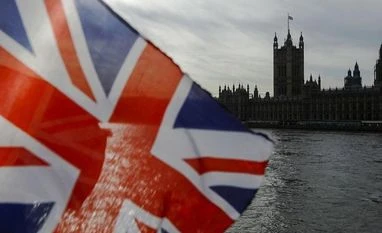UK inflation jumps to 10.4% for the first time, surprising analysts
Britain's inflation rate rose for the first time in four months in February, surprising an analysts and increasing pressure on the Bank of England to raise interest rates at its meeting on Thursday
)
Photo: Bloomberg
Britain's inflation rate rose for the first time in four months in February, surprising an analysts and increasing pressure on the Bank of England to raise interest rates at its meeting on Thursday.
The consumer price index jumped to 10.4 per cent in the 12 months through February from 10.1 per cent the previous month, as high energy prices continued to squeeze household budgets, the Office for National Statistics said Wednesday.
While economists expect prices to drop rapidly later this year, inflation is more than five times higher than the Bank of England's 2 per cent target.
The central bank will weigh the need to control inflation against concerns about the fallout from global banking troubles when it decides whether to raise interest rates on Thursday. The bank has approved 10 consecutive rate increases since December 2021, pushing its key bank rate to 4 per cent.
Michael Hewson, chief analyst at CMC Markets UK, said he expects the Bank of England to raise rates by at least a quarter of a percentage point.
A base rate of 4 per cent barely seems adequate to act as a drag on this measure of price rises and will still increase the pressure on the Bank of England to raise rates on Thursday, Hewson said in a note to clients before the inflation figures were released.
(Only the headline and picture of this report may have been reworked by the Business Standard staff; the rest of the content is auto-generated from a syndicated feed.)
More From This Section
Don't miss the most important news and views of the day. Get them on our Telegram channel
First Published: Mar 22 2023 | 2:19 PM IST


